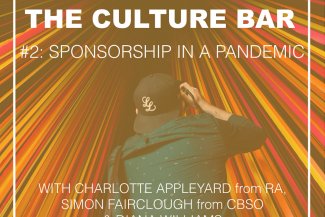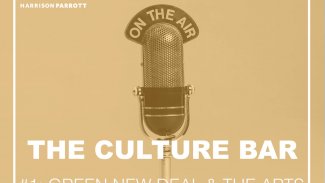The Culture Bar Podcast: No.2 Sponsorship in a Pandemic
5/8/2020

In the second episode of the Culture Bar podcast series, we will be discussing arts sponsorship more generally but also the challenges and opportunities presented by the COVID19 pandemic. We are delighted to be joined by Charlotte Appleyard Director of Development and Business Innovation at Royal Academy of Arts, Simon Fairclough Director of Development at City of Birmingham Symphony Orchestra, and Diana Williams fundraising, sponsorship and project management consultant currently serving on the boards of The Collective in Edinburgh and the Association for Visual Arts in Cape Town. Hosted by Henry Southern.
We will cover these key areas:
Individual giving
Corporate fundraising
Trusts and Foundations
Statutory funding
New Business Initiatives
Find us on Spotify, iTunes, Google Podcasts, YouTube, Podbean, Deezer and all good podcatcher sites.
#theculturebar
The Culture Bar is a podcast series focusing on conversations around culture, music and the arts which matter to you. A special thank you to Robert Cochrane as the composer of the theme tune, and Merlyn Thomas our editor.
